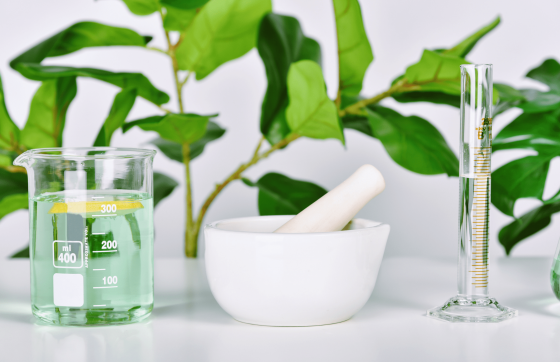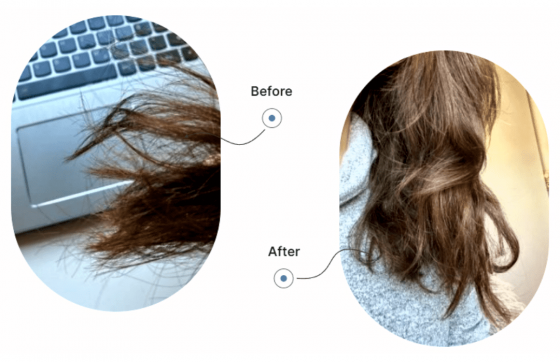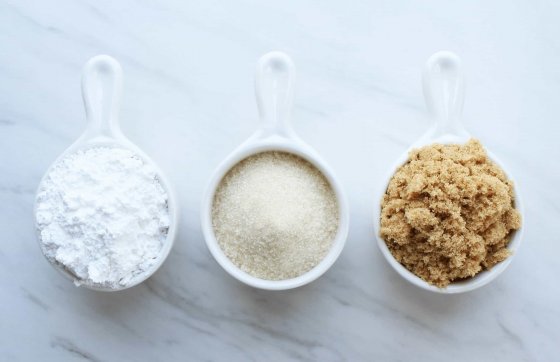
How to Keep Your Hair from Falling Out and Stop Hair Loss in its Tracks [2023]
![How to Keep Your Hair from Falling Out and Stop Hair Loss in its Tracks [2023]](https://blog.hairqare.co/wp-content/uploads/cache/2022/04/Featured-Image-Hair-680x432.jpg)
Table of contents
- Balance your hormones to stop hair loss
- What causes a hormone imbalance?
- How can I rebalance my hormone levels to prevent hair loss?
- Avoid tight hairstyles to keep your hair healthy.
- Care for your scalp by stimulating hair follicles
- Reduce hair damage to encourage hair growth
- Don't forget about your products!
- Where do I begin if I want to stop hair loss?
When I went to college, my hair fell out. First, it was slow. Then over time, I could feel a bald patch on the back of my head. My hair was dehydrated and looked damaged. It had utterly lost its thick, healthy shine.

It turns out I lost my hair for several reasons. I wasn't eating a balanced diet (my main go-to was potatoes), I was using a $2 shampoo, and moving away from home was an emotionally stressful event.
If you're suffering from hair loss, tell-tale signs include excessive clumps falling out in the shower, thinning hair, bald patches, or a reduction in hair volume. While it's normal to experience hair loss, an extreme amount can leave you feeling defeated and down heartened.
That's why I'm going to fill you in on the leading causes of hair loss:
- A hormone imbalance
- An unhappy scalp
- Using the wrong hairstyles
- Damaging external practices
Let's dive in.
Balance your hormones to stop hair loss
I used to think an imbalance of hormones was only the case when I was a spotty teenager listening to Paramore. However, your hormones can be out of whack no matter your age, and it can lead to hair loss.

What causes a hormone imbalance?
Women's bodies go through significant changes during their lifetimes, so it makes sense that we have greater hormone fluctuations than men.
Certain medications, health conditions, and lifestyle factors can also trigger a nutritional deficiency that leads to a hormonal imbalance (this is one of the lessons that we tackle in our 14 Day Haircare Challenge, part of it is to check if you have any deficiencies).
What hormone do imbalances cause hair loss?
If you've heard it once, you've heard it before, stress kills. But how exactly does it affect your hair? Emotional or physical stress redirects red blood cells away from your scalp and sends them to the essential organs in your body. It then releases a hormone called cortisol, which acts as adrenaline to give you extra energy.

Cortisol, however, is a nasty mamma. She targets and attacks hair follicles, pushing them from the growth phase into the resting phase. Major bodily changes, such as menopause, PCOS, and pregnancy trigger a fall in hormones such as estradiol, progesterone, and estrogen, and a rise in male hormones, such as testosterone.
That means the hair follicle no longer has the productive hormones they need to grow. A lack of the right hormones can lead to hair thinning and excessive hair loss.

How can I rebalance my hormone levels to prevent hair loss?
The good news is that you can regulate your hormones with a hormone-balancing diet. A medically reviewed study in 2018 shows that including more protein through Omega 3 can slow down the progression of female pattern hair loss and other hair loss conditions to encourage healthy hair.
Join our 14-day Haircare Challenge to get some guidance on a healthy diet to promote healthy hair growth and stress managing techniques to decrease hair loss.

Avoid tight hairstyles to keep your hair healthy.
Unless you've been living under a rock the past few years, you'll know all about the Kardashians. But did you know that Kourtney Kardashian got a decent-sized bald spot on the crown of her head from a crazy tight ponytail she had at an event?
If a restrictive style can pull your hair out by the roots after one night, think of the damage it could do after months or even years of this harmful practice.
The solution is pretty simple, avoid any hairstyles that will cause you to lose your hair. Tight ponytails, tight braids, and hair extensions are all a big no-no, as they can cause thinning hair.
Instead, use protective styles to promote hair growth, increase hair volume and prevent hair loss.

Care for your scalp by stimulating hair follicles
Hair loss often begins at the scalp and can be a prominent cause of hair loss. If your scalp is not in peak condition, it may damage the hair shaft as it grows out.
Conditions such as the dry scalp, dandruff, and scalp psoriasis can be challenging, so keep your scalp healthy by stimulating the blood flow with scalp massages, which gives nutrients and oxygen an easier time reaching your scalp.
Your passing hair growth cycle includes the telogen (resting phase) and anagen (growing phase), so try diluting essential oils and adding them to your scalp massages to maximize the growth stage and prevent hair loss.
You can also give low-level laser therapy a go. Some peer-reviewed studies show low-level laser therapy can stimulate hair follicles by increasing blood flow to the scalp and reducing hair shedding.
If you are unsure of your scalp condition get in touch with a dermatologist for a correct diagnosis and treat your scalp accordingly.

Reduce hair damage to encourage hair growth
Maintain healthy hair by implementing the following steps:
- Use a gentle shampoo.
- Don't brush wet hair.
- Avoid heat styling.
- Eliminate all harsh ingredients from your hair routine.
Mechanical damage is one of the leading causes of hair loss as it weakens and snaps hair strands. Unless your hair is naturally curly, don't brush wet hair. If your hair is wavy or straight, its elasticity increases when wet, making it more vulnerable to breakage.
Harsh chemical treatments or heat tools, such as curling irons or straighteners, also cause hair fall, but they're not the only culprit. If you don't want to damage your hair, combine blow drying on a low setting and letting hair air dry. Blow dryers on high heat will scorch the hair shaft and increase hair loss.

Don't forget about your products!
Many hair cosmetics also contain ingredients that strip the hair cuticle of its natural oils. Use a gentle shampoo (you can find a hair growth boosting shampoo recipe in the 14 Day Haircare Challenge) and check all your hair products for toxic ingredients using the blocklist checker database on the hair care course.
Where do I begin if I want to stop hair loss?
- Lower stress levels and eat a healthy diet to balance your hormones.
- Don't Kardashian it and opt for protective hairstyles instead of tight ponies.
- Care for your scalp by stimulating the hair follicles and increasing blood flow.
- Cut out heat styling, harsh ingredients, and unhealthy hair practices.







